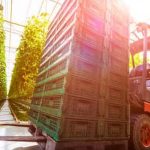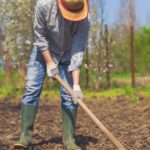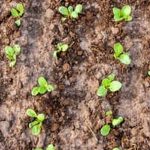Are you interested in starting a vegetable garden in Alberta, Canada? Vegetable gardening in Alberta Canada offers its own set of challenges and rewards due to the unique climate and soil conditions of the region.
From selecting the right vegetables to dealing with pests and diseases, there are many factors to consider when starting your own garden. In this article, we will explore everything you need to know about vegetable gardening in Alberta Canada, from climate and soil conditions to tips for starting and maintaining your garden.
Alberta’s climate and soil conditions can be challenging for vegetable gardening, but with the right knowledge and techniques, it is possible to grow a successful garden. The province experiences short, cool summers and cold winters, making it important to select vegetables that are well-suited for these conditions. Factors such as frost dates, precipitation levels, and temperature fluctuations all play a role in determining what vegetables will thrive in this environment.
In addition to understanding the unique climate and soil conditions of Alberta, it is also important to know which vegetables are best suited for growing in this region. Certain vegetables such as potatoes, carrots, lettuce, and peas tend to perform well in Alberta’s cooler climate, while others may require more effort or specialized care. By choosing the right vegetables for your area, you can increase your chances of success and enjoy a bountiful harvest from your garden.
Climate and Soil Conditions in Alberta Canada for Vegetable Gardening
When it comes to vegetable gardening in Alberta Canada, understanding the climate and soil conditions is essential for successful cultivation. Alberta has a unique climate, characterized by cold winters and warm summers, which can pose challenges for growing certain types of vegetables. The province also has diverse soil types, including clay, loam, and sandy soils, each with their own advantages and disadvantages for vegetable gardening.
The climate in Alberta is classified as humid continental, with varying temperature and precipitation patterns depending on the region. In general, the southern areas of Alberta experience milder winters and longer growing seasons compared to the northern regions. This means that certain vegetables that require a longer growing season may be better suited for southern Alberta, while others that are more cold-resistant can thrive in the north.
In terms of soil conditions, Alberta’s diverse geology results in different soil types across the province. For example, the fertile soils in the Edmonton area are well-suited for vegetable gardening, while clay soils in other regions may require additional amendments to improve drainage and fertility.
Conducting a soil test before starting a vegetable garden can provide valuable information on the pH levels, nutrient content, and texture of the soil, allowing gardeners to make informed decisions about which vegetables to grow and how to properly amend their soil for optimal plant growth.
| Best Vegetables for Alberta Canada | Climate/Soil Considerations |
|---|---|
| Carrots | Cold-resistant; well-drained soil |
| Potatoes | Fertile soil; prefers cooler temperatures |
| Tomatoes | Warm temperatures; requires sunny location |
Best Vegetables to Grow in Alberta Canada
When it comes to vegetable gardening in Alberta Canada, choosing the right vegetables to grow is crucial for success. With its unique climate and soil conditions, certain vegetables thrive better than others in this region. Some of the best vegetables to grow in Alberta Canada include cold-hardy crops such as root vegetables like carrots, beets, and potatoes. These vegetables can withstand the unpredictable weather and thrive in the rich soil found in many parts of Alberta.
Another set of vegetables that do well in Alberta’s climate are leafy greens like lettuce, spinach, and kale. These vegetables can be planted early in the spring or late summer for a fall harvest, making them versatile options for Alberta gardeners. Additionally, cruciferous vegetables such as broccoli, cauliflower, and cabbage also have a higher success rate in Alberta’s cooler temperatures.
Other popular choices for vegetable gardening in Alberta include tomatoes (especially cherry tomatoes), peppers, and herbs like basil and parsley. While these may require more attention due to the shorter growing season, many gardeners find success with these warm-season crops by using protective measures like cloches or row covers.
Overall, when planning a vegetable garden in Alberta Canada, it’s important to consider the specific needs of each crop and select varieties that are well-suited for the region’s climate and soil conditions. By choosing the best vegetables to grow in Alberta Canada, gardeners can increase their chances of a bountiful harvest while enjoying the rewards of their hard work.
Tips for Starting a Vegetable Garden in Alberta Canada
Choosing the Right Location
When starting a vegetable garden in Alberta, it is important to choose the right location for your garden. Pick a spot that receives at least 6-8 hours of sunlight per day and has access to water for irrigation. Additionally, consider the wind patterns in your area as strong winds can damage young plants.
Preparing the Soil
The soil in Alberta can be quite challenging for vegetable gardening, so it is essential to prepare the soil properly. Test the soil to determine its pH and nutrient levels, then amend it as necessary. Adding organic matter such as compost or well-rotted manure can help improve soil structure and fertility.
Start Small
It’s tempting to plant a wide variety of vegetables when starting a garden, but it’s best to start small, especially if you are new to vegetable gardening in Alberta Canada. Choose a few easy-to-grow vegetables such as lettuce, radishes, and tomatoes to begin with. As you gain experience and confidence, you can expand your garden and try growing more challenging crops.
By following these tips for starting a vegetable garden in Alberta Canada, you can set yourself up for success and enjoy a bountiful harvest of fresh, home-grown produce. Whether you are an experienced gardener or just starting out, vegetable gardening in Alberta Canada can be a rewarding and enjoyable activity that provides tasty and nutritious food for you and your family.
Maintaining and Caring for Your Vegetable Garden in Alberta Canada
Once you have successfully started your vegetable garden in Alberta, it is important to prioritize the maintenance and care of your plants to ensure a successful harvest. Here are some essential tips to help you maintain and care for your vegetable garden:
1. Watering: Alberta’s dry climate can make watering a critical aspect of vegetable gardening. It is important to consistently water your plants, especially during hot and dry periods. Consider investing in a drip irrigation system or soaker hoses to ensure that your plants receive an adequate amount of water without wasting resources.
2. Weeding: Weeds can compete with your vegetables for nutrients, water, and sunlight, so regular weeding is vital. Make it a habit to check for weeds and remove them from your garden beds on a weekly basis.
3. Mulching: Applying mulch around your vegetable plants can help conserve moisture, suppress weeds, and regulate soil temperature. Organic mulches such as straw or wood chips can also improve soil fertility as they decompose over time.
4. Fertilizing: Keep an eye on the nutrient needs of your vegetable plants and apply organic fertilizer as needed. Conduct a soil test to determine which nutrients may be lacking in your soil, and amend accordingly.
By following these maintenance tasks regularly throughout the growing season, you will be well on your way to a bountiful harvest from your vegetable garden in Alberta Canada. With proper care and attention, you can enjoy fresh and nutritious produce straight from your backyard throughout the summer months.
Dealing With Pests and Diseases in Vegetable Gardening in Alberta Canada
Identifying Common Pests and Diseases
One of the challenges of vegetable gardening in Alberta, Canada is dealing with pests and diseases that can affect your plants. Common pests to look out for include aphids, cutworms, and flea beetles. These pests can cause damage to your vegetables by eating away at the leaves and stems.
In terms of diseases, common ones to watch for are powdery mildew, blight, and root rot. It’s important to be able to identify these issues early so that you can take the necessary steps to address them.
Natural Pest and Disease Control Methods
When it comes to controlling pests and diseases in your vegetable garden, it’s best to use natural methods whenever possible. This can include introducing beneficial insects like ladybugs or lacewings to help control aphid populations.
Non-toxic sprays made from ingredients such as neem oil or insecticidal soap can also be effective against a range of pests. For disease prevention, good garden hygiene practices like proper spacing between plants and using drip irrigation instead of overhead watering can help reduce the risk of diseases taking hold.
Seeking Help From Local Resources
If you encounter a pest or disease issue in your Alberta vegetable garden that you’re unsure how to handle, don’t hesitate to seek help from local resources. The Alberta Horticultural Association offers resources and support for gardeners facing pest and disease problems. Additionally, local garden centers or agricultural extension offices may have experts who can provide guidance on how to effectively address specific issues affecting your vegetable crops.
By being proactive in identifying and addressing pest and disease issues in your vegetable garden, you can better ensure a successful harvest of healthy vegetables in Alberta, Canada.
Harvesting and Storing Vegetables in Alberta Canada
When it comes to vegetable gardening in Alberta Canada, the harvesting and storing process is just as important as the planting and growing stages. Here are some tips for a successful harvest and proper storage of your homegrown vegetables:
- Harvesting: Different vegetables have different indicators that they are ready to be harvested. For example, root vegetables like carrots and beets should be gently pulled from the soil when they have reached a suitable size, while leafy greens can be continually harvested by picking individual leaves. It’s important to research the specific harvest times for each vegetable to ensure you are picking them at their peak ripeness.
- Storing: Proper storage is crucial to extend the shelf life of your harvested vegetables. Most vegetables can be stored in a cool, dark place with good air circulation. Root cellars or basements can work well for storing vegetables like potatoes, onions, and squash. It’s also important to store different types of vegetables separately, as some emit gases that can cause others to spoil more quickly.
Another important factor in storing your harvested vegetables is knowing which ones can be preserved through methods like canning, freezing, or pickling. Canning is a great way to preserve fruits and tomatoes that you may have an abundance of from your garden, while freezing is ideal for preserving peas, green beans, and other veggies that don’t maintain their flavor well when canned.
In addition to these general tips on harvesting and storing your vegetables, it’s also important to remember that Alberta Canada experiences cold winters. This means you’ll want to make sure you’ve completed your harvest before the first frost hits in order to avoid losing any of your hard work in the garden.
By following these tips for harvesting and storing your homegrown produce through vegetable gardening in Alberta Canada, you can enjoy the fruits (and vegetables) of your labor long after the growing season has ended.
Resources and Support for Vegetable Gardening in Alberta Canada
One of the most important aspects of successful vegetable gardening in Alberta Canada is having access to the right resources and support. Fortunately, there are several organizations, communities, and resources available to help both beginner and experienced gardeners in the region.
The Alberta Gardening Association is a valuable resource for anyone interested in vegetable gardening in Alberta. They provide a wealth of information on topics such as soil preparation, plant selection, pest control, and more. The association also often hosts workshops, seminars, and events that allow gardeners to connect with others who share their passion for growing vegetables in Alberta Canada.
Another great resource for vegetable gardening in Alberta Canada is local gardening clubs and community gardens. These groups offer a sense of community and support for individuals looking to learn from others or share their own expertise. Many gardening clubs also organize seed exchanges or plant sales, making it easier for gardeners to access a wide variety of plants suitable for the Alberta climate.
In addition to these resources, many local nurseries and garden centers in Alberta offer support and guidance for vegetable gardening. They often employ knowledgeable staff who can provide advice on selecting the best vegetables for the region, choosing the right soil amendments, and dealing with common pests and diseases. Visiting these establishments can be incredibly helpful for beginners seeking guidance on starting their own vegetable garden in Alberta Canada.
Conclusion
In conclusion, vegetable gardening in Alberta, Canada offers numerous joys and benefits to both novice and experienced gardeners. Despite the challenges posed by the region’s climate and soil conditions, with careful planning and dedicated effort, individuals can successfully grow a variety of vegetables in their own backyard. From the satisfaction of seeing seeds sprout to the nourishment of harvesting fresh produce, vegetable gardening provides a sense of fulfillment and connection to the earth.
Moreover, engaging in vegetable gardening in Alberta, Canada promotes a healthier lifestyle by providing access to organic and locally grown food. This not only reduces the reliance on store-bought produce but also encourages a greater appreciation for sustainable living. Additionally, tending to a vegetable garden can be an excellent form of physical activity and stress relief, offering mental and emotional wellness benefits as well.
Furthermore, vegetable gardening in Alberta Canada fosters a sense of community and shared knowledge among fellow enthusiasts. With various resources and support available, such as local gardening clubs or online forums, individuals can learn from others’ experiences and receive valuable advice. Overall, embracing vegetable gardening in Alberta Canada is an enriching endeavor that rewards individuals with bountiful harvests and a deeper connection to nature.
Frequently Asked Questions
What Vegetables Can You Grow in Alberta?
In Alberta, you can grow a variety of vegetables including tomatoes, potatoes, carrots, peas, lettuce, kale, spinach, and radishes. Due to the short growing season, it’s important to choose vegetables that are suitable for the climate.
When Can You Start Planting Vegetables in Alberta?
In Alberta, vegetable planting typically begins in May once the risk of frost has passed. However, this can vary depending on the specific location within the province. It’s important to check local frost dates and weather conditions before starting your planting.
What Is the Easiest Vegetable to Grow in Canada?
The easiest vegetable to grow in Canada is often considered to be lettuce. Lettuce is relatively low-maintenance and can be grown in containers or directly in the ground. It also has a relatively short growing period and can tolerate cooler temperatures which makes it ideal for Canadian gardens.

If you’re looking to get into vegetable gardening, or are just looking for some tips on how to make your current garden better, then you’ve come to the right place! My name is Ethel and I have been gardening for years. In this blog, I’m going to share with you some of my best tips on how to create a successful vegetable garden.





